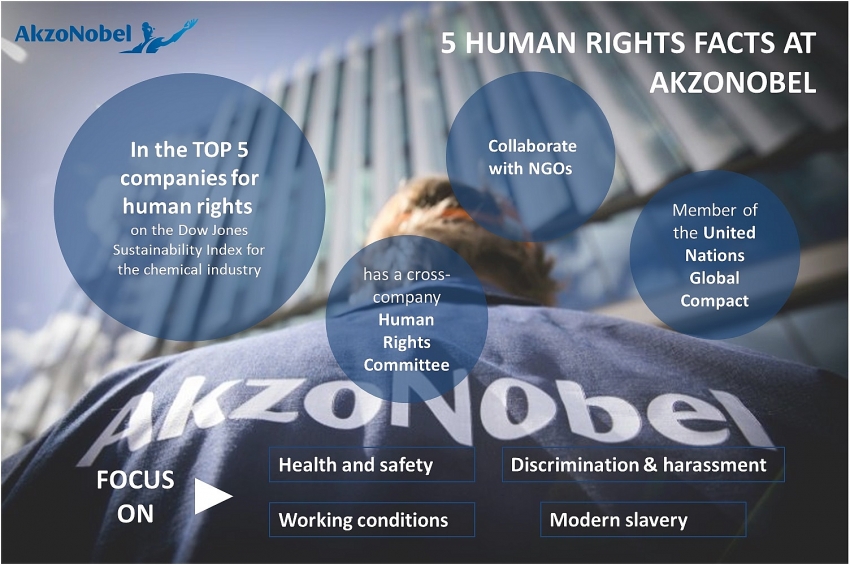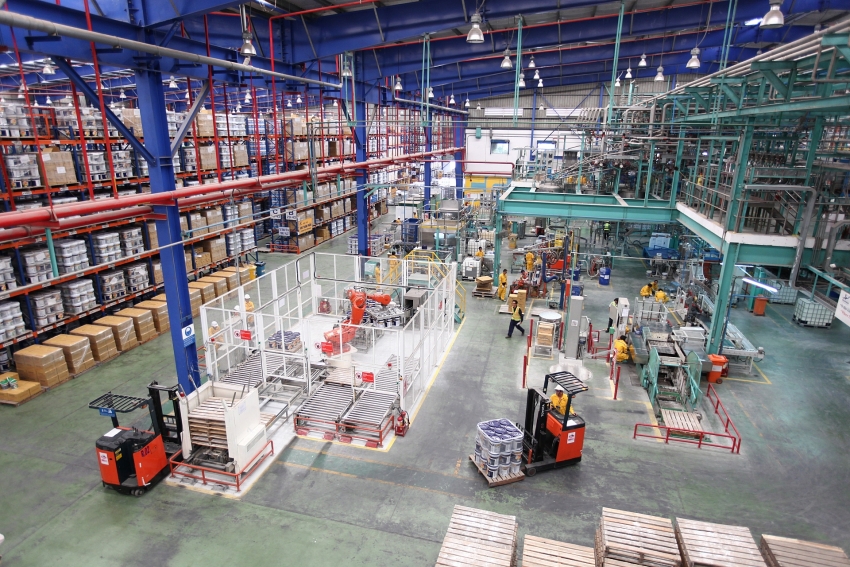Five things you should know about human rights at AkzoNobel
 |
Even if you have had a pretty ordinary day, you might be surprised to find out you have exercised your human rights – probably quite a few of them!
AkzoNobel wants people to be safe, healthy, have decent working conditions, and work in an environment where they are respected and treated fairly. Human Rights Day (December 10, 2018) reminds the company of the commitment that it has made to respect people’s human rights in its operations and across the value chain.
When you get out of bed, shower, eat breakfast, take your children to school, attend a meeting, write down project pros and cons – you exercise Articles 1, 2, 3, 4, 5, 6, 16, 18, 19, 23, 24, 25, and 26 of the International Declaration on Human Rights.
It helps if the commitment to human rights comes from the top. AkzoNobel’s executive committee makes sure the company operates with integrity, safety, and sustainability – all contributing to human rights in some way.
 |
| AkzoNobel's factory in Binh Duong province has high HSE&S standards |
| - AkzoNobel has a cross-company Human Rights Committee responsible for its human rights framework which sets out how the company respect human rights (based on the UN Guiding Principles on Business and Human Rights). - The company’s human rights programme focuses on health and safety, working conditions, discrimination, and harassment, as well as modern slavery. - The company is a member of the United Nations Global Compact, the world's largest corporate sustainability initiative – companies aligning with universal principles on human rights, labour, environment, and anti-corruption – and contributed to the development of their programme. - AkzoNobel collaborates with NGOs. For example, the pearlescent pigments the company uses to make paint “shiny” contain mica minerals from a region of India where children are now known to work in the mines. Together with NGOs and AkzoNobel’s direct suppliers, the company is making sure indirect suppliers act in a responsible way that do not impact the human rights of children or adults. - AkzoNobel is one of the top five companies for human rights on the Dow Jones Sustainability Index for the chemical industry, having improved for two years in a row. |
What the stars mean:
★ Poor ★ ★ Promising ★★★ Good ★★★★ Very good ★★★★★ Exceptional
Related Contents
Latest News
More News
- Masan Consumer names new deputy CEO to drive foods and beverages growth (February 23, 2026 | 20:52)
- Myriad risks ahead, but ones Vietnam can confront (February 20, 2026 | 15:02)
- Vietnam making the leap into AI and semiconductors (February 20, 2026 | 09:37)
- Funding must be activated for semiconductor success (February 20, 2026 | 09:20)
- Resilience as new benchmark for smarter infrastructure (February 19, 2026 | 20:35)
- A golden time to shine within ASEAN (February 19, 2026 | 20:22)
- Vietnam’s pivotal year for advancing sustainability (February 19, 2026 | 08:44)
- Strengthening the core role of industry and trade (February 19, 2026 | 08:35)
- Future orientations for healthcare improvements (February 19, 2026 | 08:29)
- Infrastructure orientations suitable for a new chapter (February 19, 2026 | 08:15)

 Tag:
Tag:

























 Mobile Version
Mobile Version